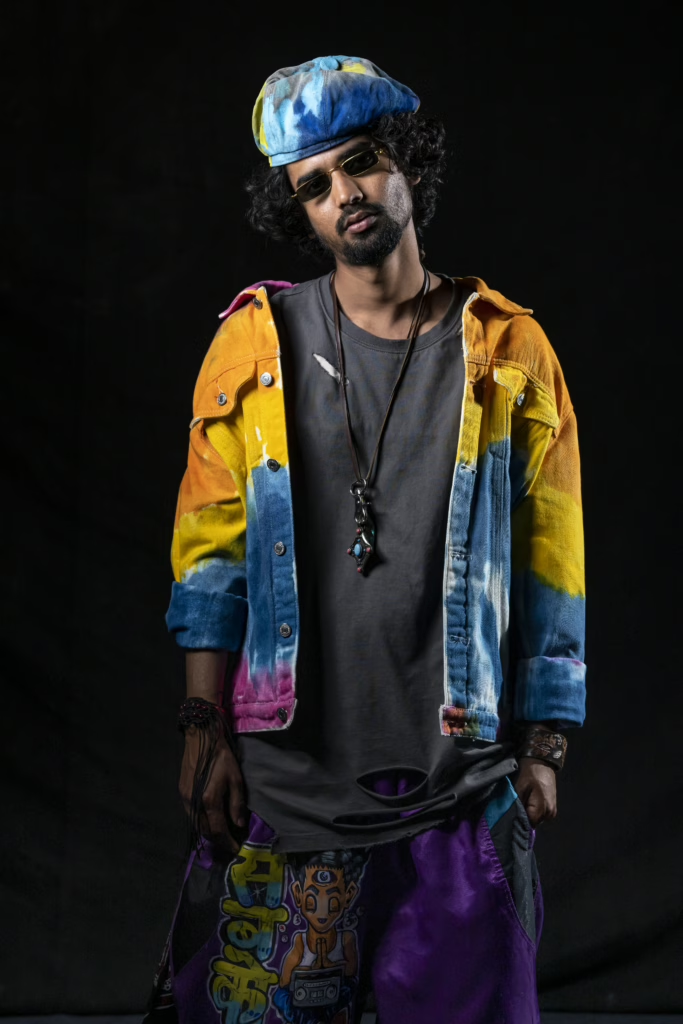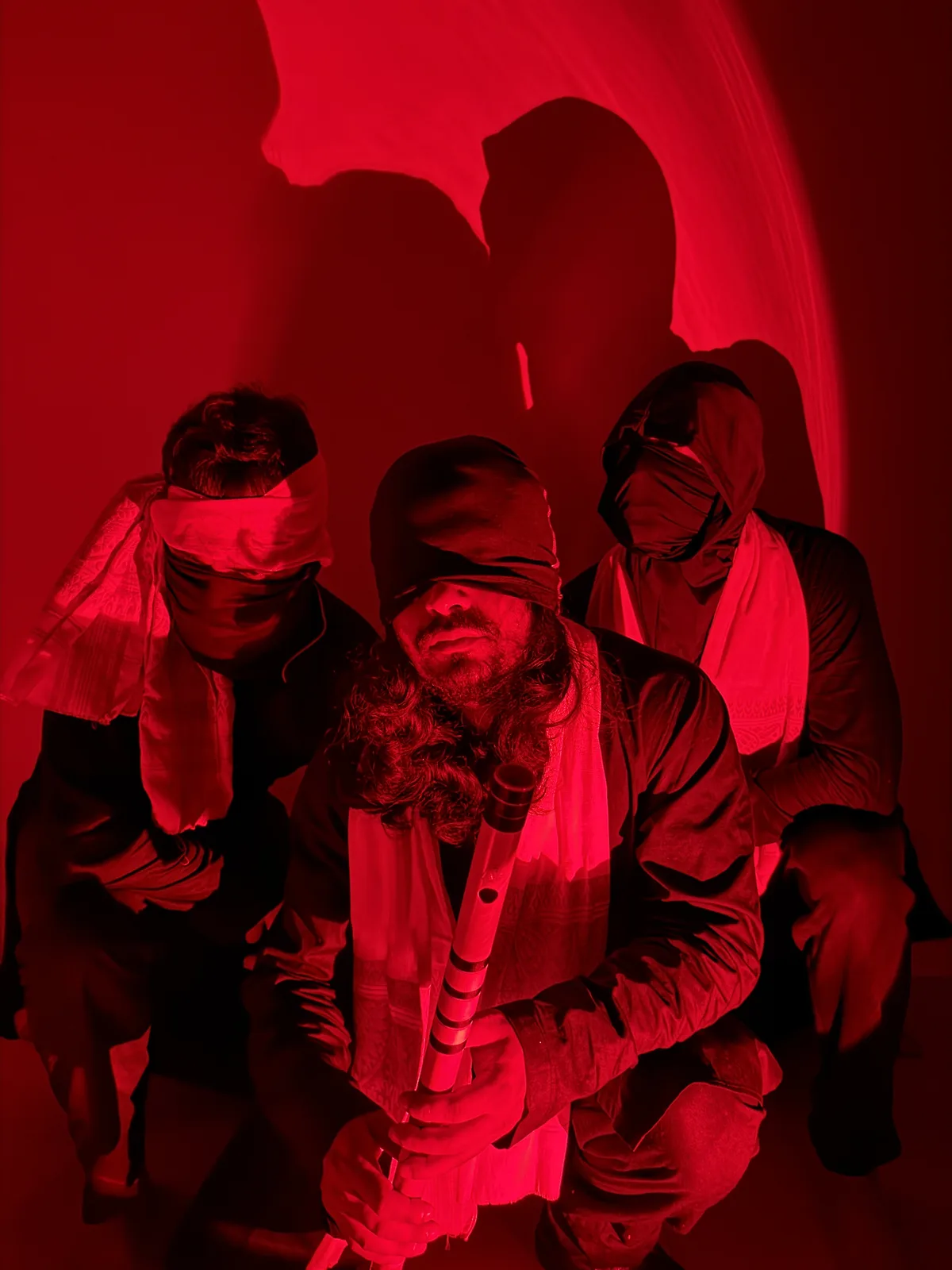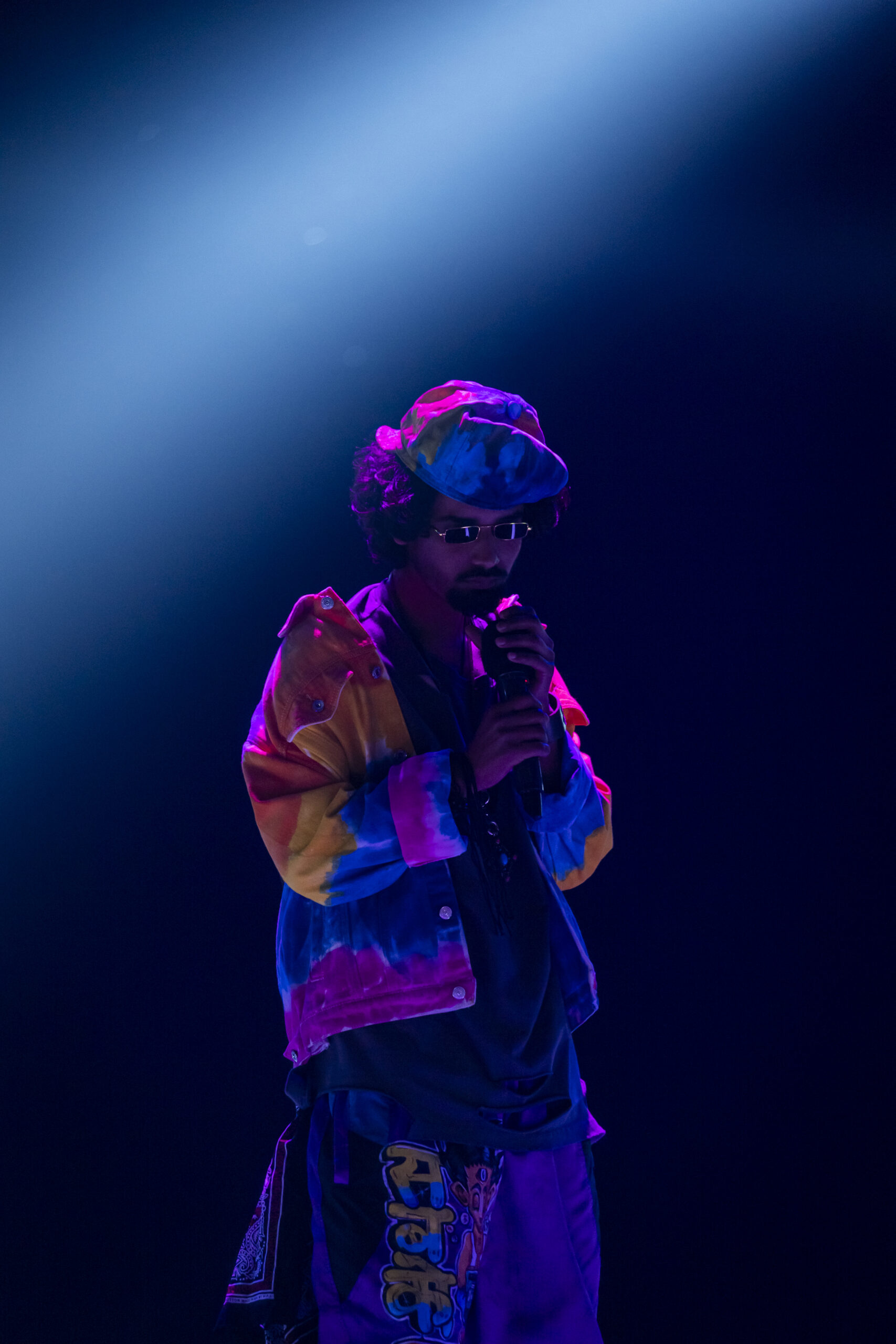Albela’s new EP, BOHOT AJEEB ARTIST, is part of the artist praxis one engages in to reconcile with oneself. With cover art that resembles a Picasso painting, an intentional motif that shows up throughout the record — this is a record where the artist has gone swimming, in some ways — and is deeply aware of previous tragic attempts : which is to say, a huge chunk of the project has him speaking to himself, the remainder to his audience – where he wades through a dissembling, debilitating form of grief almost as if to mark the fact that he has made it out, but also is constantly mentally flashbanged by every single time he has been thunder-struck by what he has overcome.
The press note from Albela reads as such, “He first made waves on the show Spotlight, where industry heavyweights like Divine and King were quick to recognize a unique talent with an unwavering vision. Surviving personal hardships, including the turmoil of the pandemic, he’s poured his solace into his music, and his listeners are finding solace there, too. One look through his YouTube comment section and you’ll know this is a fanbase that’s poised to deepen and grow.

His recent track, “”Picasso,”” has rapidly become a Gen Z anthem, with over 550,000 streams across platforms and over 5,700 reels on Instagram fueled by its raw honesty. In stark contrast to his previous work, the deeply introspective “”Albela Kon Hai,”” written during the lockdown, was a punch to the gut—a “”suicide note,”” as he put it—that challenged listeners to confront life’s uncomfortable questions. This fearless duality defines his sound, moving effortlessly from the relatable to the profound.” With his upcoming EP, Bohot Ajeeb Artist!, Albela is ready to show the world his full spectrum. Featuring five songs, with “Picasso” as the lead, the EP embraces his self-proclaimed “ajeeb” (strange) style, a tough pill for some to swallow. Partnering with Dronark, he uses his colorful lens to paint a world that will make you laugh sometimes and think often. This isn’t just a collection of songs; it’s a statement from an artist who refuses to be anything but himself.” The insistence on being an ‘ajeeb artist’ is interesting — it is almost as if he is stuck in an entrapment of his own making, where he is facing the alienation that comes from being different, he is also simultaneously revelling in it – while also trying to not care at all. A number of the tracks take the cadence of a wilful drunken ramble – where he is repeatedly telling himself that the optics of his situation have not blinded him completely.
The EP is 5 songs and around 14 minutes long. Albela’s influences are from all over the place, with trap and jazz ones making appearances throughout — as he almost resigns and gives into doom, occasionally resurfacing with resilience. What is consistent throughout is his self-loathing brand of comedy, where there is a punchline almost every few seconds so that he himself does not fall off into the deep end. The project is lyric heavy, with one of the most successful numbers being Picasso — which is a 2:45 long rant of sorts, as mentioned before, has amassed a cult-like listening base among younger audiences. What one does not notice the very first moment, is that while Albela almost unceasingly delivers line after line, oversaturating you with his thoughts to the point that it seems like a ramble – it is a conscious choice. The artist’s biggest strength is his ability to mix his strength at writing his verses with his free-flowing cadence, which does not ready you to be met with deepened introspection and political ideologue – especially on Kisiki Zaroorat Nahi Hai, where his disillusionment meets his incisive cynicism with contemporary India.
The artist keeps his painting metaphor consistent, and for a lot of the project – he is dwelling between casting blame and recognizing his own, especially on Kahani Adhoori, which has saxes punctuating the track into this melancholia of a little separate time, where the failings of a relationship gone by has destabilized him (and his therapist), and plays into the pre-established theme where he is the victim and cause of grief.
Overall, the EP is sound, and Albela’s grip over his pen works — because you have to appreciate his lyricism. My only qualm, perhaps, would be his lack of experimentation with his soundscape — which while does not really become much of an obstruction to the listening experience because of the lyrics hard-carrying, you do sort of tire yourself out by the 5th song because of its repetitive sound spectrums. The jazz elements, and the guitars are all there – and one wonders what would happen if they were used to a greater potential, in a way that the sound of Albela’s music would not just be reliant on the sound of his voice. Otherwise, this is a solid record, and most rappers should take notes from the artist if they intend to sharpen their verbal tetherings, and tap into more — especially if they are second guessing self expression.





























